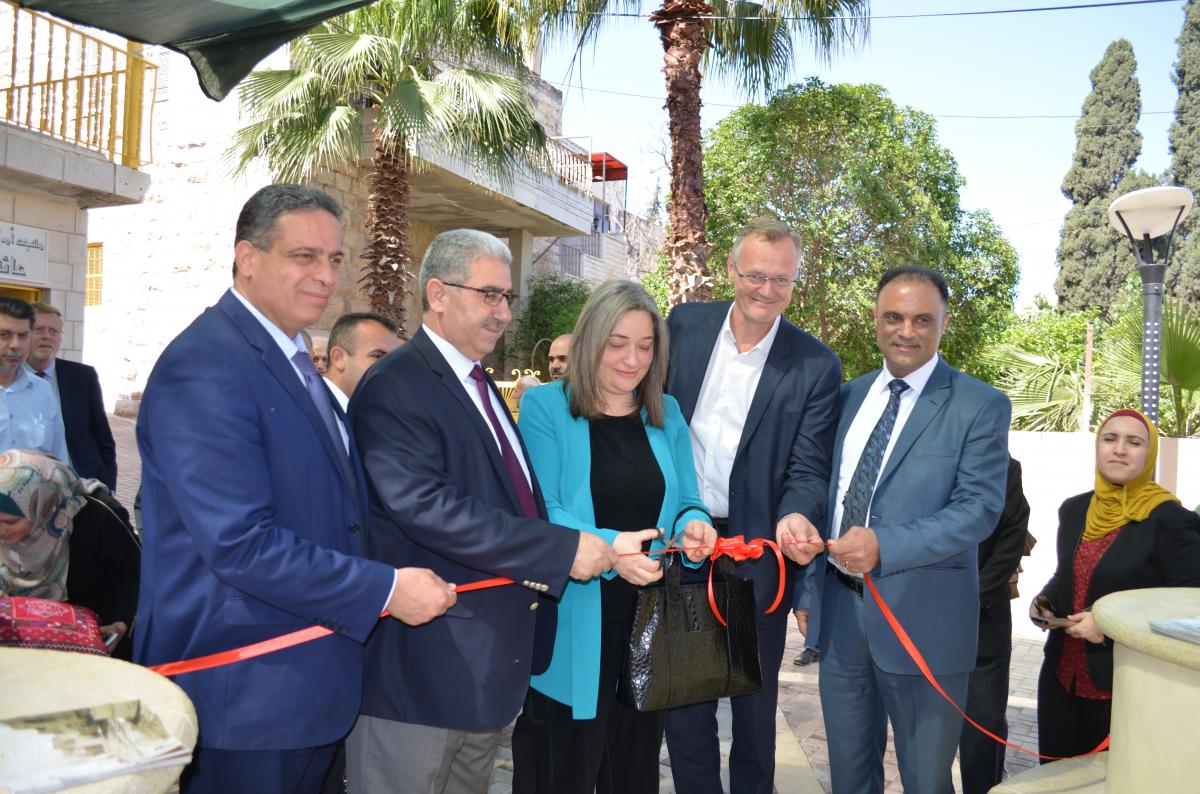The first RHC rehabilitation projects are finalized
‘Abud, also known as “the city of flowers”, is
a Palestinian village located 22 km northwest of Ramallah. The town is very
proud of its multi-religious population; Muslims and Christians. You can find several
churches, monasteries, tombs and mosques in ‘Abud, all of high archaeological
interest.
Because of its interesting history and historic
center, ‘Abud was selected to be part of the RHC program. After developing the
regeneration strategy together with the community, ‘Abud was chosen as a “Quick
Fruit Project”; to be a project with a big impact for its rather low or limited
efforts and resources needed.
Yesterday, after 2 months of hard work, the 2
rehabilitation projects in ‘Abud; the main plaza and the path to the Barbara
historic site, were officially inaugurated. After clipping the ribbon, speeches
were given, a dabke dance was performed and a poem about ‘Abud was recited.
General Director MDLF, Dr. Tawfiq
Budeiri: “The importance is not the project itself, but
the program. The RHC program has changed the idea of preservation,
rehabilitation and regeneration in Palestine. […] Another important aspect of
this program is that the Ministry of Local Government, the Ministry of Tourism
& Antiquities, MDLF, BTC and the local village council are jointly working
together. […] All partners put a lot of efforts in this project and that’s not
just because it’s our job, but also out of love for the history and heritage of
Palestine.”
The main plaza; Samra Square (560 m²), located in
front of the mosque, was historically used by both Muslims and Christians for
their religious and familial celebrations. Unfortunately the plaza and its
adjacent buildings decayed, leaving the place a desolate impression. Now, after
the rehabilitation, the plaza is back to being bright and shiny, welcoming, and
safe. From now on the plaza can again fulfill its role as a stage for social
encounter, gatherings and festivities.
On the hill opposite of ‘Abud village, only 1
km from the main plaza, one can find the remnants of an ancient monastery named
after Saint Barbara (Borbara). From the site you can enjoy a beautiful
panoramic view towards the historic town of ‘Abud and its surrounding greenery.
The RHC program rehabilitated the road (600m), connecting the archaeological
site with the city center, to make the site more and easier accessible and
provided the benches. From now on, the historic site can fully serve as a
tourist attraction and picnic area.
In a second step, promotional material and
awareness campaign will be developed side by side with the Village Council. In
addition, the Ministry of Tourism and Antiquities (MoTA) is developing hiking
trails, one of which will also pass by ‘Abud, in order for tourists to discover
the beautiful scenery and landscapes of Palestine.
Latest news from this project
No news

